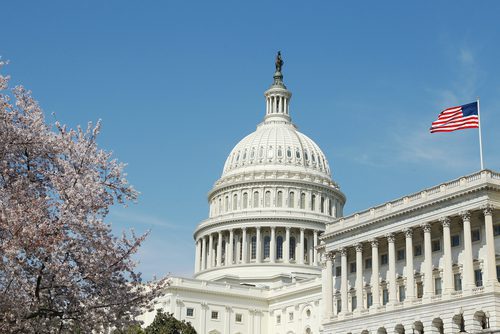
ASHG’s proposed language to establish an expanded Community Engagement Alliance (CEAL) program at the National Human Genome Research Institute (NHGRI) was included in the Consolidated Appropriations Act 2023 omnibus bill passed in December 2022. This language establishes a community engagement program to support efforts to increase the participation of individuals historically underrepresented and hesitant to participate in human genetics and genomics research. ASHG and partners at the NIH collaborated to capture this opportunity to foster diverse public participation in research so that people everywhere can benefit from the clinical advances and improved health and well-being that emerge from such research. This coalition is now determining the next steps to establish a lasting and impactful program at NHGRI in consultation with the National Heart, Lung, and Blood Institute (NHLBI) and the National Institute on Minority Health and Health Disparities (NIMHD).
Community Engagement, a Scalable Strategy to Address Underrepresentation in Genomics Research
Community engagement, defined as the practice of inclusively working with all stakeholders impacted during the research cycle, offers the chance for researchers to maximize the benefits of human genetics and genomics research through the application of responsible community engagement practices. Broad participation, especially from groups traditionally underrepresented in research, is essential to acquire a complete understanding of variation across the human genome and how such variation relates to health. Critically, effective community engagement can foster trust and sustainable partnerships, helping researchers to understand and address public hesitancy to participate in research.
To help researchers incorporate these strategies, ASHG previously announced the release of a Guidance which offers recommendations on how to incorporate community engagement throughout the research lifecycle, followed by an event at the 2022 ASHG Annual Meeting focused on making introductions and other considerations prior to beginning the research project. Inclusion of the language in the omnibus is a key continuation of efforts to integrate community engagement for genomics research in federal research efforts.
The NIH Community Engagement Alliance (CEAL) Against COVID-19 Disparities program was originally created to help address the disparate impacts of the COVID-19 pandemic and treatment disparities on communities historically underrepresented in biomedical research. ASHG is hopeful that the new expanded program can be successfully applied within human genetics and genomics research, leading to increased participation and more robust studies of the human genome. Viewing the expansion of this program as an opportunity for community engagement in genomics, a coalition of leadership at ASHG, our government relations consultants, and partners at the NIH sought to establish a new program built on CEAL’s solid foundations of inclusive partnerships to address underrepresentation and health disparities in human genetics and genomics research. This resulted in the programmatic language included in the Consolidated Appropriations Act 2023 (P.L. 117-328) (See Box 1).
Statement from the Consolidated Appropriations Act 2023 – Division H, Departments of Labor, Health and Human Services, and Education, and Related Agencies (pg. 76)
Next Steps for Community Engagement at NIH

Successfully advocating for the inclusion of this language in the Consolidated Appropriations Act 2023 is an important success, yet more work remains to be done to ensure this community engagement program can be maximally impactful for the human genetics and genomics community, including the need to secure funding. The establishment of this expanded CEAL program represents an important step in ASHG’s broader advocacy mission. ASHG is pleased to partner with NHGRI and others to advance our shared mission of improving health and well-being through transformative innovations in genomics and genetics. To this end, ASHG is currently engaged in conversation with NIH to ensure the provisions in the Consolidated Appropriations Act 2023 are implemented in a way that centers diversity, equity, and inclusion in the conduct of human genetics and genomics research.
ASHG is committed to ensuring that the federal programs and policies that inform human genetics and genomics research are aligned with the professional practice and social responsibilities of our field, and we are glad to see Congress provide support for tactics to advance these goals.
How You Can Get Involved
Become an ASHG Advocate and sign-up for our e-newsletter; learn more about ASHG’s policy priorities and advocacy activities by visiting our advocacy page. By taking action, ASHG seeks to highlight the role of the genetics and genomics research field in translating science into beneficial application and communicating with the public and policymakers about the value and responsible use of genetic and genomic knowledge.
